What is the Autumn Statement and how could it affect Wales?
- Published
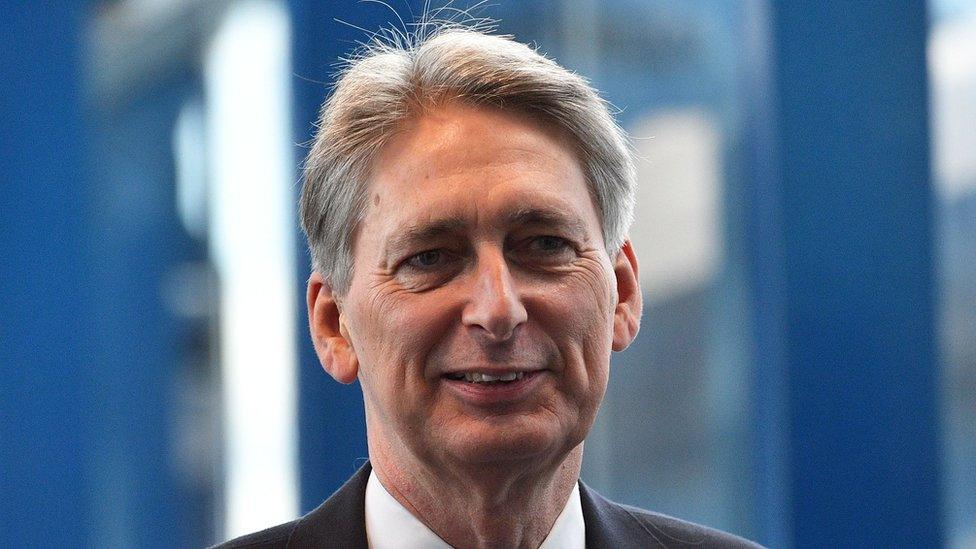
This Wednesday Chancellor of the Exchequer Philip Hammond will unveil his first Autumn Statement since he was promoted to the role in the summer.
It is his chance to lay out how he wants to proceed with the country's finances in the wake of the referendum vote.
Much in Wales is devolved to Cardiff, but the purse strings are not. How could Wednesday's statement affect us on this side of Offa's Dyke?
This explainer was produced ahead of the 2016 autumn statement announcement. For information on what happened, see our update.

What is the autumn statement?
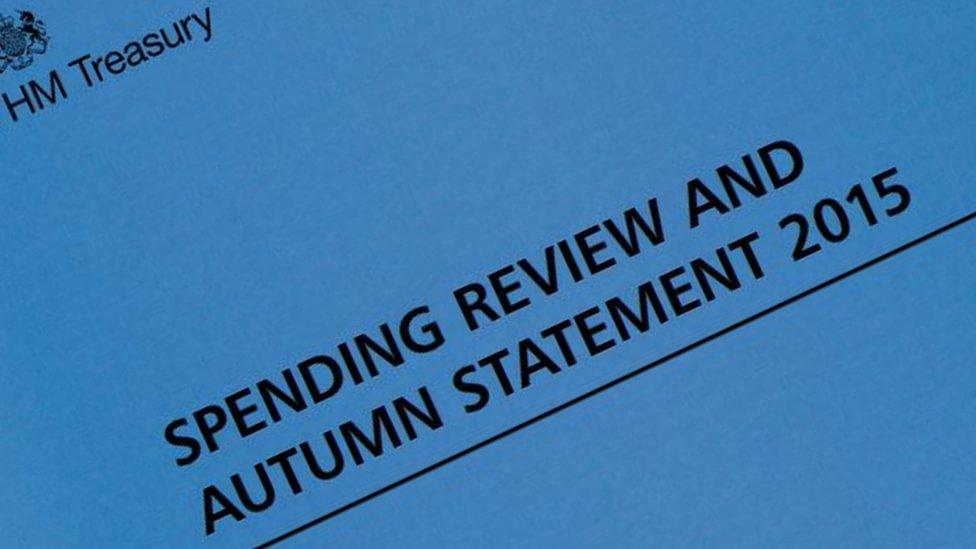
Last year's autumn statement
In simple terms, the autumn statement is the second of two of the most important statements the Chancellor makes every year - the other being the Budget.
The new chancellor will update MPs on the government's plans for taxation and spending, based on projections for economic growth that come from the Office for Budget Responsibility.
It is different from the budget because... well it is not so clear cut these days.
In the past, the Autumn Statement outlined economic projections and how cash would be spent in different government departments, and taxation was kept to the Budget.
But recently we have had taxation thrown into the Autumn mix too.

Why does that matter to me - I thought everything was devolved in Wales?
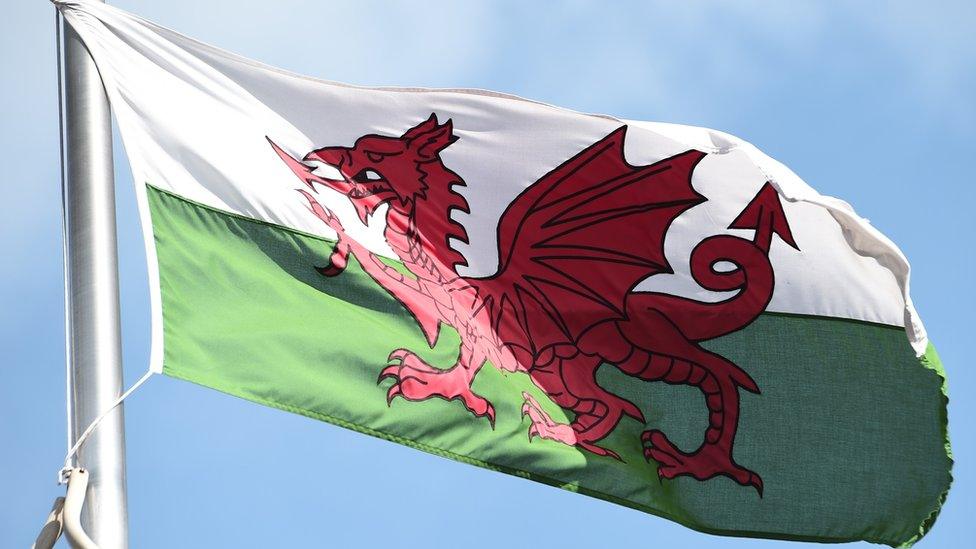
The big public services - health, education and local government - might be run from Cardiff Bay, but they are in effect funded by the UK Treasury.
Wales gets what's known as a block grant - a big lump of cash - which the Welsh Government slices and dices to decide which services get which bit of the pie.
That will change a little in 2018 when Wales starts levying its own taxes, but the lion's share of funding will still come from the UK government.
And there are plenty of bits of government spending that are not devolved which still matter to you. Benefits is a big one.
For example, some 43,375 were claiming job seekers allowance in Wales in 2015, while there are 650,870 people in receipt of the state pension.
Policing and justice is funded and controlled from Westminster, too, as is the armed forces.
Total public spending in Wales is in the region of £30bn, around half of which is spent by the UK government and half by the Welsh Government.

What happened last year?
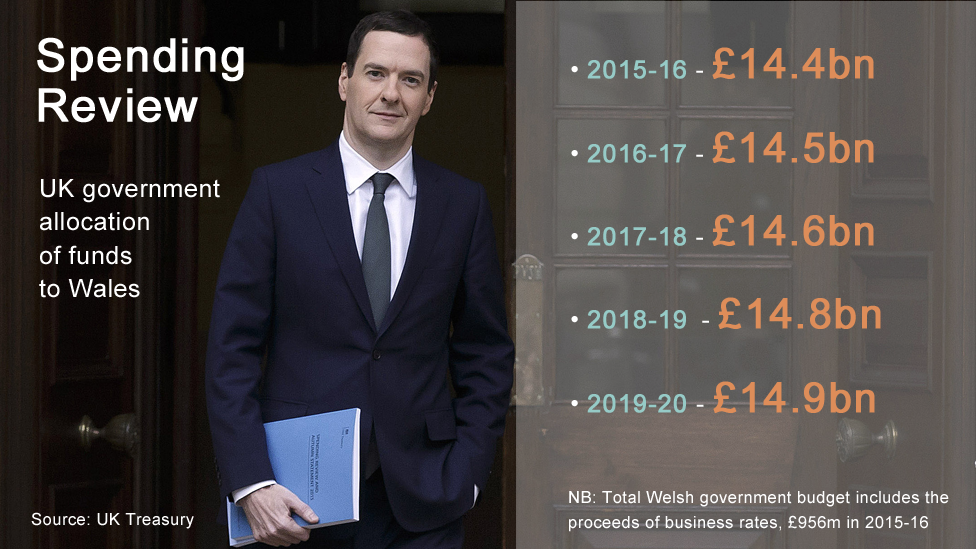
How the former chancellor George Osborne laid out how funding for the Welsh Government would change over the next few years
Former Chancellor George Osborne's big announcement for Wales in Autumn 2015 was that the power to vary income tax was to be granted to AMs without a referendum.
That means Welsh ministers could control £3bn of taxes a year by 2020.
He also confirmed the "funding floor" for Wales, which ensures the amount of spending here remains proportionally higher than what is spent in England.
The Welsh Government at the time said their budget would still fall in real terms, however.
The chancellor also said he would also help fund a "city deal" backing infrastructure projects for Cardiff and the surrounding areas, to which the Welsh government and local authorities had already pledged £580m.

What's likely to happen this time around?
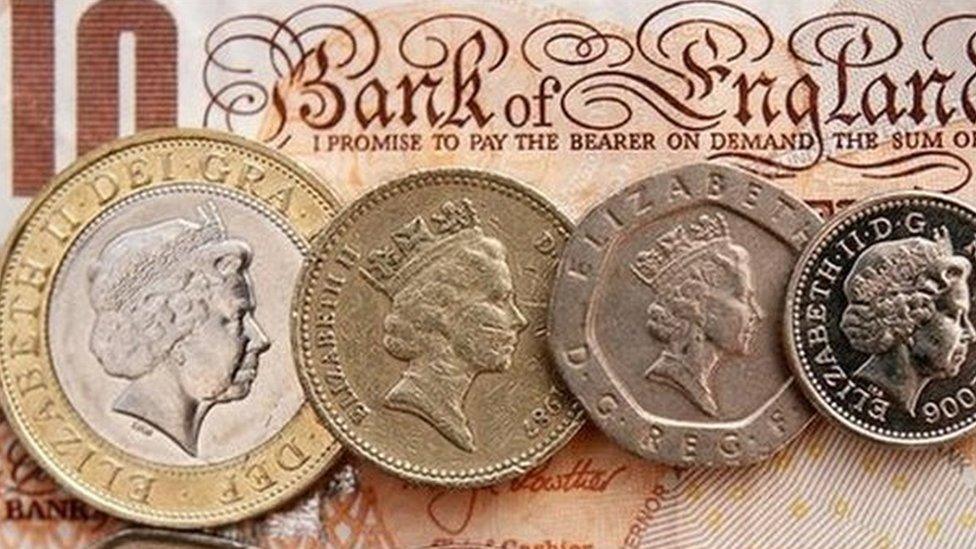
There has been much speculation that big political surprises are unlikely this year - rabbits out the hat are perhaps going to be thin on the ground.
Brexit and it's enormity is likely to be in the background of this autumn statement - with projections for growth in the economy expected to be cut.
There have been trails for more cash for roads, while £2bn has been pledged for funding scientific research.
But would the government want to make big spending decisions now if it needs to make bigger gestures to help the economy later?
Theresa May had said, before she became prime minister, that the government would no longer seek to reach a surplus by 2020 - a position where the government raises more money than it spends.
That may not end austerity, though.
The Institute for Fiscal Studies (IFS) has warned that the government would face a £25bn hole in the public finances thanks to projected slower growth after Brexit.

What could Wales get out of it?
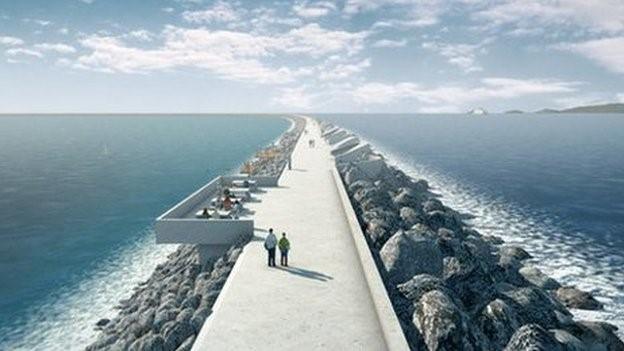
An artist's impression of the Swansea Bay Tidal Lagoon
As is usually the case, we will be looking out for any increases or decreases in public spending in Wales as a result of extra, or less, cash for English services.
We already know that a trailed infrastructure announcement that could see £1.3bn spent on roads in England will have a consequential impact on Wales of "tens of millions" - although precise figures were not available earlier this week.
But tens of millions is relatively small beer when compared to the overall capital budget for 2017/18 of £1.4bn - and in terms of infrastructure spending it is tiny.
The chancellor could offer a "city deal" for Swansea in the same way his predecessor offered a deal to Cardiff.
He could make an announcement on the tidal lagoon for the same part of the world - its building has been delayed by a year as negotiations on the project continue.
But as our parliamentary correspondent, David Cornock, has already pointed out, it would perhaps be wise not to wait for an announcement on either.
- Published22 November 2016

- Published21 November 2016
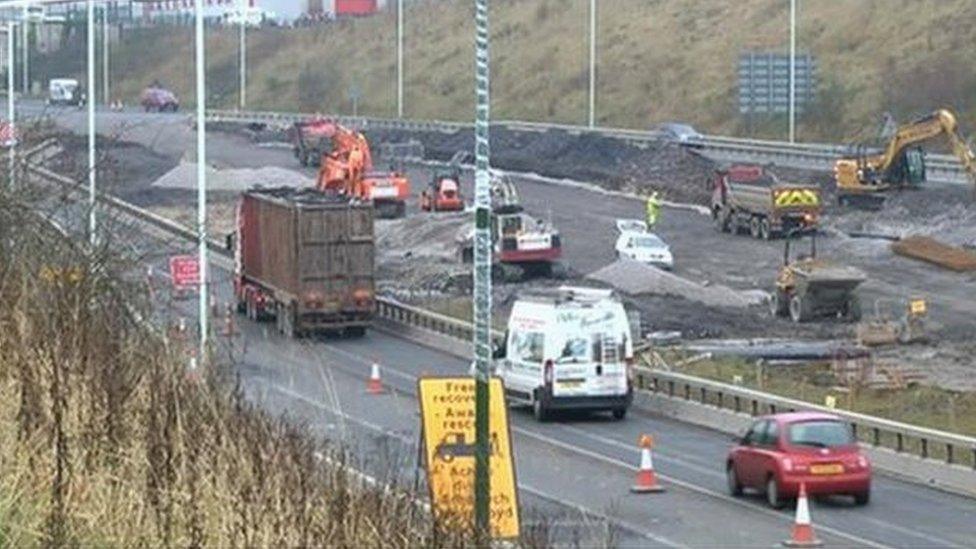
- Published20 November 2016
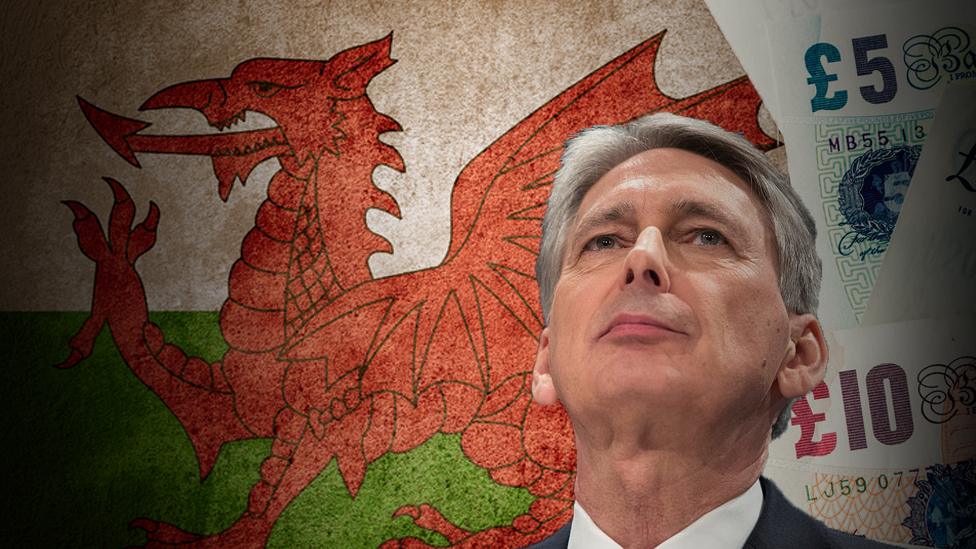
- Published21 November 2016
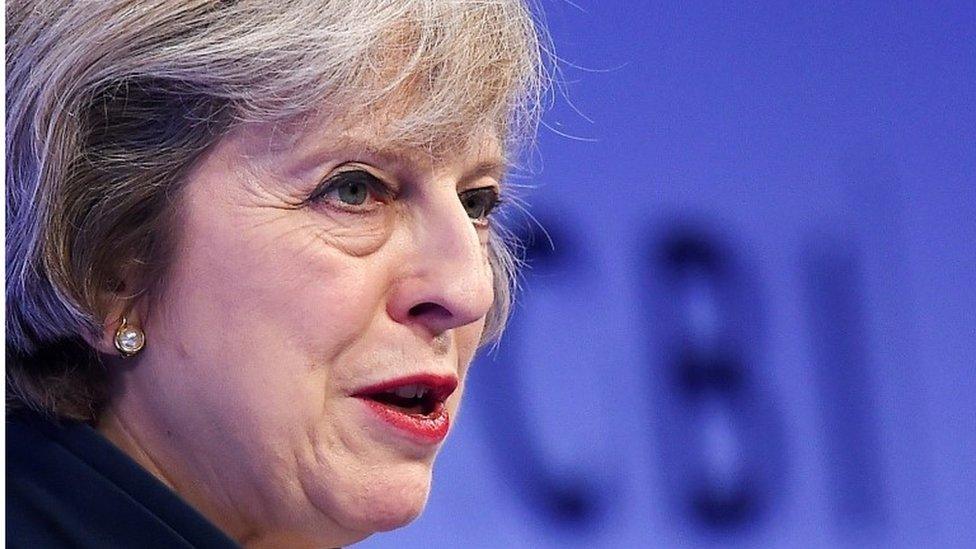
- Published25 November 2015

- Published21 November 2016
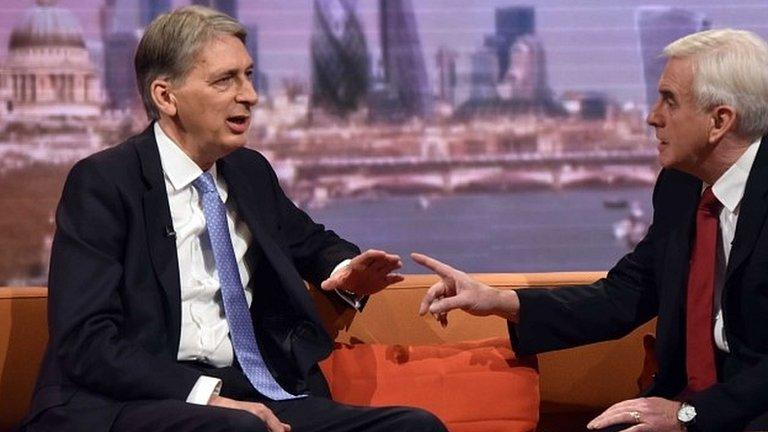
- Published20 November 2016
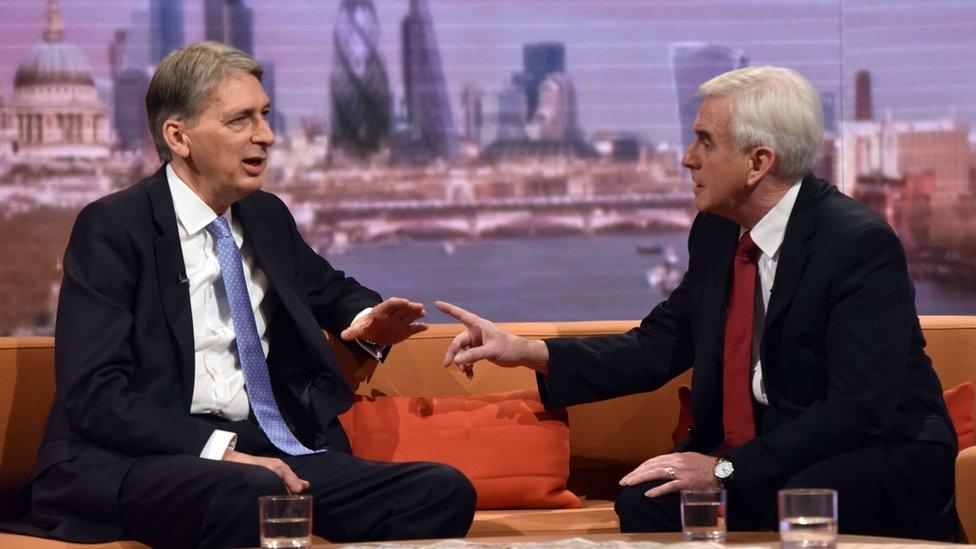
- Published21 November 2016
